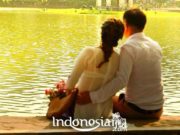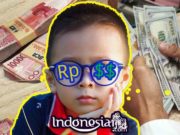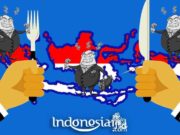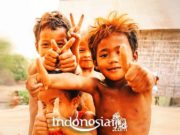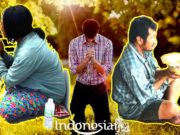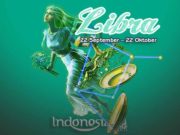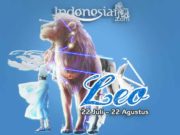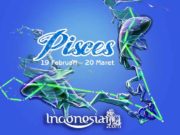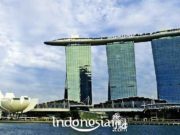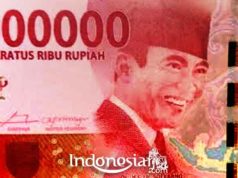Kejawen or commonly called Kebatinan is a belief that is mainly adhered to in Java by Javanese and other ethnic groups who live in Java. In essence, Kejawen is a philosophy which has existed since the Javanese. This can be seen from his universal teachings and always attached side by side with the religions of his day. The ancient Kejawen books and manuscripts do not affirm its teachings as a religion even though it has practice. Kejawen also cannot be separated from the religion adopted because Kejawen philosophy is based on religious teachings adhered to by Javanese philosophers.
Since long time ago, the Javanese have recognized the oneness of God so that it has become the core of Kejawen teachings, namely directing human beings: Sangkan Paraning Dumadhi (lit. “Where do God’s servants come and return”) and form human beings as true to their gods as: Manunggaling Kawula lan Gusthi (lit. “United Servant and God”). From that unity, Kejawen teachings have the following mission:
1. Mamayu Hayuning Pribadhi (as a personal gift)
2. Mamayu Hayuning Kaluwarga (as a blessing for the family)
3. Mamayu Hayuning Samaan (as a blessing for fellow human beings)
4. Mamayu Hayuning Bhuwana (as a blessing for the universe)
Unlike the abangans, the Kejawen people are relatively obedient to their religion, by staying away from the prohibitions of their religion and carrying out their religious orders but still maintaining their identity as indigenous people, because the teachings of the Kejawen philosophy encourage obedience to their god. So it is not surprising that there are many schools of Javanese philosophy according to their religion, such as: Islam Kejawen, Hindu Kejawen, Christian Kejawen, Buddhist Kejawen, Kejawen Kapitayan (Belief) by continuing to carry out their customs and culture that are not against their religion.
Etymology
The word “Kejawen” comes from the word “Javanese”, which means in Indonesian is “everything related to Javanese customs and beliefs (Javanese)”. The name “kejawen” is general, usually because the language of instruction is Javanese. In the general context, Kejawen as a philosophy that has certain teachings, especially in building the Krama (noble life rules), Kejawen as a religion was developed by the followers of the Kapitayan religion so it is very unwise to use the name Kejawen as a religion where all religions are adhered to by Javanese people have thick Javanese characteristics.
Kejawen in public opinion contains the arts, culture, traditions, rituals, attitudes, and philosophy of the Javanese people. Kejawen also has a spiritualistic or spiritualistic meaning for the Javanese people, the main spiritualist practices of Kejawen are Pasa (Fasting) and Tapa (Meditation).
Adherents of Kejawen teachings usually do not consider their teachings as a religion in the sense of a monotheistic religion, such as Islam or Christianity, but rather see it as a set of viewpoints and values coupled with a number of practices (similar to “worship”). Doctrine Kejawen usually does not stick to strict rules and emphasizes the concept of “balance”. The nature of Kejawen has similarities with Confucianism (not in the context of the teachings). Kejawen followers almost never hold doctrinal extension activities, but carry out regular training.
Symbols of “laku” take the form of native Javanese traditional instruments, such as keris, puppets, mantra recitation, use of certain flowers that have symbolic meanings, and so on. These symbols show a sense of magic (magical authority) so that many people (including the Javanese followers themselves) can easily take advantage of Kejawen with occult and shamanic practices, even though these things never exist in the teachings of the Kejawen philosophy.
The teachings of Kejawen vary, and a number of schools can adopt the teachings of immigrants, both Hindu, Buddhist, Islamic, and Christian. The symptom of syncretism itself is considered not something strange because it is considered to enrich the perspective of the challenges of changing times.
Important days
Sultan Agung of Mataram is considered a philosopher laying the foundation of Muslim Kejawen which then greatly influences important ceremonies, especially the most visible is the calendar in determining important days. Important days of kejawen cannot be separated from “Birth – Marriage – Death” (death), all of which are life in Javanese tradition. The Javanese will get a name for the three events, namely the name at birth, the name at marriage, the name at death (the name of death by adding “bin” / “binti” the name of the parents after the birth name). All important days are determined according to the Javanese calendar which has Primbon as rules for determining important days and procedures. The following are important days in Kejawen:
1. Suran (New Year 1 Sura).
2. Sepasaran (birth ceremony) and akikah for Muslims.
3. Mantenan (marriage with all the ceremonies).
4. Mangkat (funeral ceremony) – Send prayers (feast, wirid, Koran) 7 days, 40 days, 100 days, 1000 days, 3000 days.
5. Megeng Pasa – 28 and 29 of the month of Ruwah (month of spirit), is used to send prayers to those who have died (departed) first, also when Munjung (sending a complete meal of rice and side dishes to the elders in the family) to tie the relationship .
6. Megeng Sawal – 29 and 30 of the month of Pasa, used to send prayers to those who have died (departed) first, also when Munjung (sending a complete meal of rice and side dishes to the elders in the family) to tie friendship for those who do not exist chance on Megeng Pasa.
7. Riadi Kupat (Hari Raya Kupat) – On the 3rd, 4th and 5th of the month of Sawal (for parents who abandoned their children before marriage).
Because the philosophy of Kejawen is also religious, religious holidays are also important days for Kejawen. The following are a few additional important days for kejawen muslim:
1. Hari Raya Idulfitri.
2. Hari Raya Iduladha.
3. Hari Raya Jumat.
4. Muludan (Maulid Kanjeng Nabi Muhammad, S.A.W.).
5. Sekaten (Syahadatain).
The followers of Kejawen are very fond of fasting in the teachings of Islam because it is considered the same as the teachings of their ancestors as well as meditation which is considered the same as asceticism.
1. Fasting Weton – Fasting on the day of his birth according to the Javanese calendar.
2. Fasting Sekeman – Fasting on Monday and Thursday.
3. Fasting Month – Fasting on every 13th, 14th, and 15th of every Javanese calendar month.
4. Dawud Fasting – Intermittent fasting, fasting day is not.
5. Fasting Ruwah – Fasting on the days of the month of Ruwah (month of Spirits).
6. Sawal Fasting – Fasting six days in the month of Sawal except the 1st of Sawal.
7. Pasa Apit Kayu – Fasting for the first 10 days in the 12th month of the Javanese calendar.
8. Fasting Sura – Fasting on the 9th and 10th of the month of Sura.
In addition to fasting on kejawen also has fasting usually to describe kezuhudan (sincerity) in achieving desire, the types of fasting are as follows:
1. Pasa Mutih – This fast is done by eating only white rice, without salt and side dishes or snacks and others, as well as drinking white water.
2. Fasting Patigeni – Fasting can not eat, drink, and sleep and can only be in the room without the light of the lamp.
3. Ngebleng Fasting – Fasting can not eat and drink, can not leave the room, can just go out but just defecate and can sleep but only for a short time.
4. Fasting Ngalong – Fasting does not eat and drink but can sleep for a while and can go.
5. Ngrowot Fasting – Fasting that can not eat rice and can only eat fruits or vegetables.
Books and Teachings
Kejawen does not have the Bible, but the Javanese have a password that is symbolized and implied in all joints of life and believe Kejawen teachings are contained in it without the slightest change because it has a grip (strict rules), all implicit teachings to form The main practice is Tata Krama (Supreme Rule of Life) to form Javanese people who are humble (have praiseworthy morals), these things are mainly much contained in the following types of writing:
Kakawin (Sawi Kawi) – Ancient (old) metrum literary book contains wejangan (advice) in the form of teachings implied in the story of the journey of 5 books, written using the ancient Javanese script and the ancient Javanese language
Macapat (Sastra Carakan) – The new (new) meter literature book contains wejangan (advice) in the form of teachings implied in the story of the journey that consists of more than 82 books, written using Javanese script and some Javanese written using Pegon letters
Babad (History) – The book that tells the history of the archipelago is more than 15 books, written using Old Javanese script and Old Javanese language as well as Javanese script and Javanese language
Suluk (Spiritual Path) – The book of procedures for taking the supernatural path to form a noble hanjawani person and it is believed that anyone who experiences perfection will obtain supernatural powers totaling more than 35 books, written using Javanese script and some Javanese written using the letters Pegon. Suluk is also a type of literature that is developed.
Kidung (Prayers) – A collection of prayers or mantras that are read in a distinctive tone, just like any other prayer addressed to God for its adherents, each of which consists of 7 books, written using Javanese script and Javanese language
Piwulang (Teaching) – linguistically means “that which is repeated” in the form of a book that teaches the order consisting of Pituduh (Command) and Wewaler (Prohibition) to form a hanjawani person, written using Javanese script and Javanese language
Primbon (Himpunan) – Literally means “parent”, “collection”, or “summary” in the form of a book of practical practices in implementing customary orders over time, also usually equipped with a way to read the signs of the universe to predict events. written using Javanese script and Javanese language
The above manuscripts cover all aspects of Javanese life from birth to death, from ancient food recipes to asmaragama (kamasutra), and there are thousands of other texts that imply the main books above in written form, usually in the form of teaching advice, philosophy, kaweruh (knowledge), and so on.
Several schools of kejawen
There are hundreds of schools of kejawen with different teaching emphases. Some are clearly syncretic, others are reactive to certain religious teachings. But usually the teachings of many members are more emphasis on how to achieve life balance and do not forbid its members to practice the teachings of certain (other) religions.
Several streams with large members:
Budi Dharma
Kawruh Begia
Maneges
Padepokan Cakrakembang
Pangestu
Sumarah
Reactive streams, for example, those that follow the teachings of Sabdopalon which want to return the Javanese religion back to the Budi religion which is considered the original religion according to Sabdapalon, or the followers of the teachings of Syekh Siti Jenar which are Islamic teachings / schools that have been declared heretical by Wali Sanga.
Source : wikipedia






